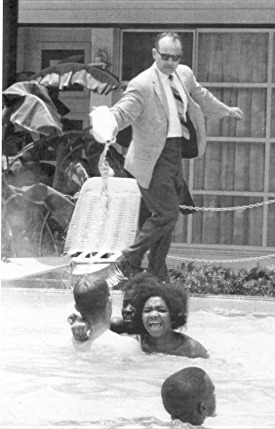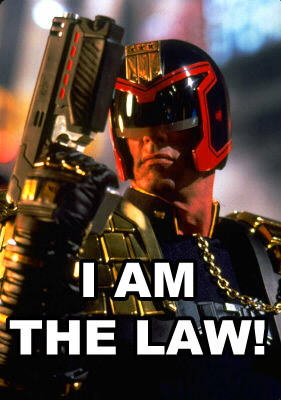I haven’t commented much on Syria, despite the fact that its revolt is just as bloody and horrific as the one in Libya. President Assad, the ruler of Syria has been waging a constant campaign of terror and violence against his citizens for opposing his regime. One of the more heinous acts I’ve seen come out of this conflict is the savage beating of a political cartoonist:
One of the best-known cartoonists in the Arab world has been beaten up by Syrian security forces, activists say. Ali Ferzat, whose work is critical of the government, was forced from his car in Damascus and badly beaten. The attack comes after 11 civilians and eight soldiers were reportedly killed in different incidents across Syria. The UN says more than 2,200 people have been killed as security forces crack down on anti-government protests that began in mid-March.
The offending cartoon is as follows:
It depicts Moammar Gathafi (which is apparently how it’s spelled in English, according to his son’s passport) fleeing in a getaway car, with president Assad and some tiny guy with an ass for a face trying to hitch a ride. It was cartoons like this that apparently justified his being dragged out of his car and beaten nearly to death. Wikipedia tells me that Assad was educated in opthamology in Damascus and London. I guess he didn’t bother to study classical literature or political science or history or pretty much anything in the humanities. If he had, it would be clear to him that ideas cannot be beaten to death. They can only be countered by other ideas. Beating a person for having and/or expressing an idea does nothing to tamp those ideas down – in the best case scenario it simply prevents that one individual from expressing it.
Maybe Ali Ferzat’s cartoon, drawn as a response to his attackers, will express this idea in a way that even Assad can understand it:
Ali Ferzat – bad mother fucker.
Like this article? Follow me on Twitter!




